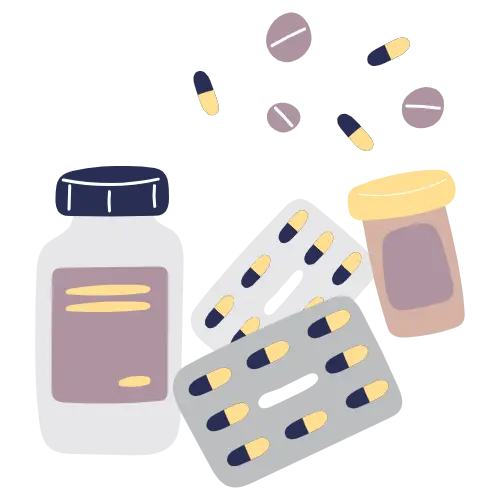Cart
Subtotal: £38.58
OTC (Over-the-Counter) pharmacy products are medications and health-related items that can be purchased directly by consumers without a prescription from a healthcare provider. These products are designed to treat common ailments and conditions, such as headaches, colds, allergies, and minor injuries, among others.

Over-the-counter (OTC) medications are drugs that can be purchased without a prescription. They are widely available in pharmacies, supermarkets, and online retailers, providing easy access to treatments for common health conditions. OTC medications are generally considered safe when used as directed on the packaging, and they are approved by regulatory agencies, after being evaluated for safety, effectiveness, and labelling.
There are a variety of OTC medications, each serving different purposes. Some common categories include pain relievers (e.g., ibuprofen, aspirin, acetaminophen), cold and allergy medications (e.g., antihistamines, decongestants), digestive aids (e.g., antacids, laxatives), and skin treatments (e.g., hydrocortisone creams, antiseptics). OTC medications help manage symptoms like pain, fever, allergies, digestive discomfort, and minor skin conditions.
Although these medications are easily accessible, it’s important to use them responsibly. The labels provide essential information about dosages, potential side effects, and warnings about drug interactions or pre-existing medical conditions that may require caution. For instance, certain pain relievers, like aspirin and ibuprofen, can increase the risk of stomach ulcers or bleeding if used in excess or for long periods. Additionally, people with certain medical conditions, such as high blood pressure, may need to avoid specific OTC medications that could worsen their health.
OTC medications are convenient for managing short-term or minor health issues, but they aren’t a substitute for professional medical advice. If symptoms persist or worsen, it’s important to consult a healthcare provider. Misuse or overuse of OTC drugs can lead to adverse effects, dependency, or worsening of the underlying condition. Therefore, even though OTC medications are readily available, they should be used thoughtfully to ensure safety and effectiveness in treating everyday ailments.